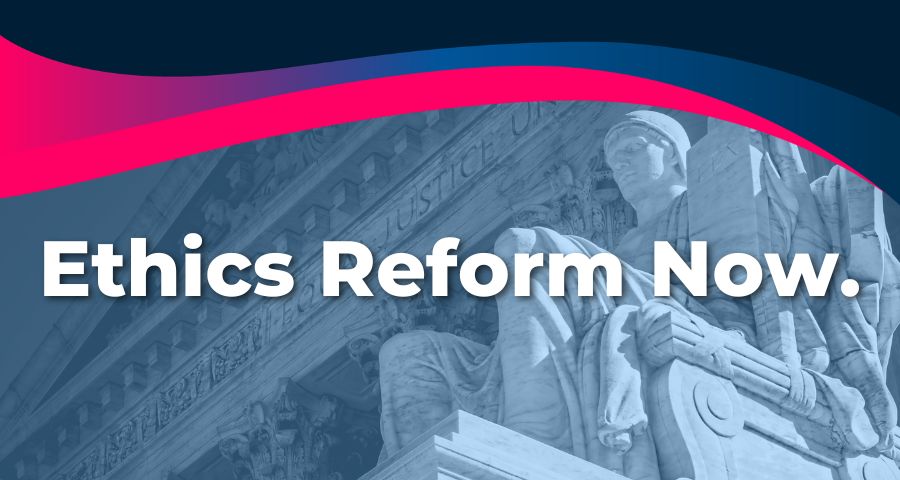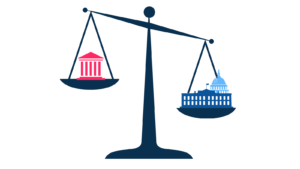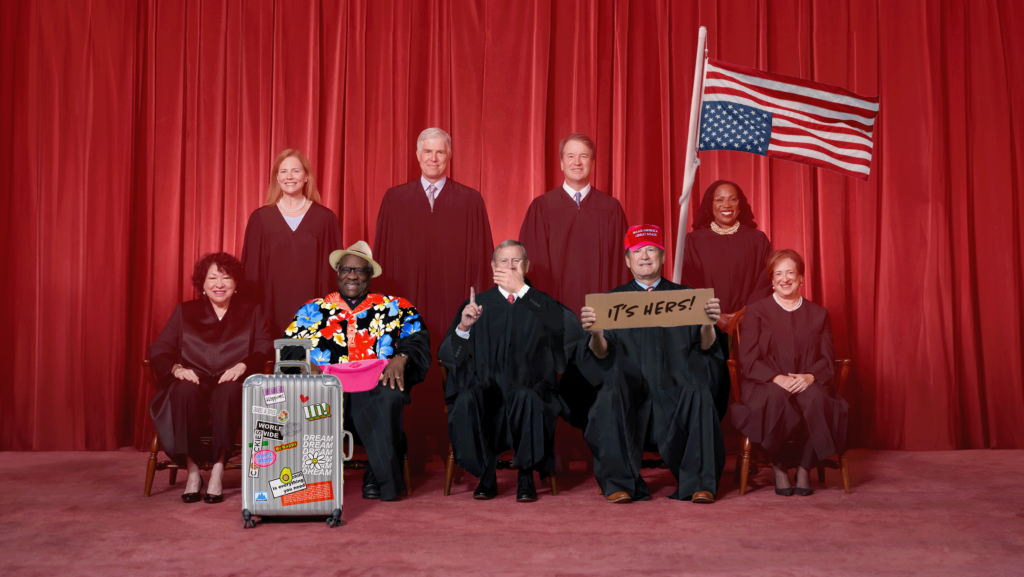
Our Campaigns
We have various types of resources available to help you advocate and stay informed on this pressing issue.
The Supreme Court is the ultimate arbiter of our Constitution and laws, but that doesn’t mean it should operate without accountability.
The Court is no more immune to politicization than the other two branches, and we must respond accordingly to its culture and behavior.
 Reforming the Court should not be a response to a crisis, but an ongoing process as part of checks and balances. Alliance for Justice supports many reforms to modernize the Court and ensure that it is fulfilling its obligation to provide justice for all. Action is needed now to reign in an out-of-control Court.
Reforming the Court should not be a response to a crisis, but an ongoing process as part of checks and balances. Alliance for Justice supports many reforms to modernize the Court and ensure that it is fulfilling its obligation to provide justice for all. Action is needed now to reign in an out-of-control Court.
In addition to more foundational adjustments to the Court’s structure and processes, Alliance for Justice is campaigning for immediate changes to respond to the Court’s abuses of power.
For too long, Supreme Court justices have played by their own rules. There has never been a binding code of ethics enforced upon the justices that they weren’t in charge of themselves. Time after time, we’ve seen them abuse this power to ignore their own accountability, whether it’s refusing to recuse from cases where they have a conflict, flouting financial disclosure laws, or otherwise compromising their sworn impartiality. After intense pressure from advocates and the public, the Court issued its first-ever Code of Conduct for Justices of the Supreme Court of the United States. Unfortunately, the code is weak and unenforceable as AFJ lays out in its piece, “The Insufficiencies of the Supreme Court’s So-Called Code of Conduct.” Click here to learn more about how an enforceable code of ethics would improve the Supreme Court’s operations.
We have various types of resources available to help you advocate and stay informed on this pressing issue.
When the Constitution was ratified, the average U.S. life expectancy was about 35 years. Nowadays, justices might spend decades on the Court, knowing upon confirmation it might be the last job they ever have. This can easily motivate the kind of corruption we’ve seen as justices seek to benefit from their role over the rest of their lives. The randomness of when Supreme Court vacancies occur likewise adds to the politicization of the Court. Click here to learn more about how term limits could help remedy these concerns.
The Supreme Court should be a shining example of transparency and accountability to the people. In many states, the state supreme court proceedings and oral arguments are filmed and played on public television. In others, the Supreme Court justices hear cases at law schools or other venues of higher education, so they don’t need to rely on a small cadre of journalists to translate their proceedings to the public. Certain administrative functions of the courts should be open to public records requests like any other public agency. Likewise, the Court should be obligated to explain all of its decisions, from recusals to orders from the “shadow docket.” Abuse and harassment have no place in our system of justice. Congress must use its oversight authority to increase the Court’s transparency and accountability to the public.
The U.S. has one of the smallest supreme courts on the planet, with not even enough justices to oversee the various circuits. Congress has the clear authority to change the number of justices on the Court — it has already changed the number of justices six times over our nation’s history. Because all nine justices oversee every case, this greatly limits their workload capability, leading them to take only dozens of the thousands of cases that reach them. In fact, as the country’s population has grown, the Court’s docket has remained steady or shrunk. Expanding the Court is an opportunity to not only dilute its current partisanship but also increase its bandwidth to serve the nation. Click here to learn more about how Court expansion benefits all Americans.
The Roberts Court has increasingly assumed more and more power for itself, taking authority away from the other two branches and declaring itself royalty. From inventing the “major questions doctrine” to overturning Chevron deference to granting the president criminal immunity, the Court has tried to transform our democracy without any accountability to the voters. Jurisdiction stripping is a way for the other branches to claw back power through laws that take certain matters off the Court’s plate. Click here to learn more about jurisdiction stripping and other ways to counter the Court’s abuse of its power.
Rakim Brooks, Keith Thirion
Rakim Brooks

